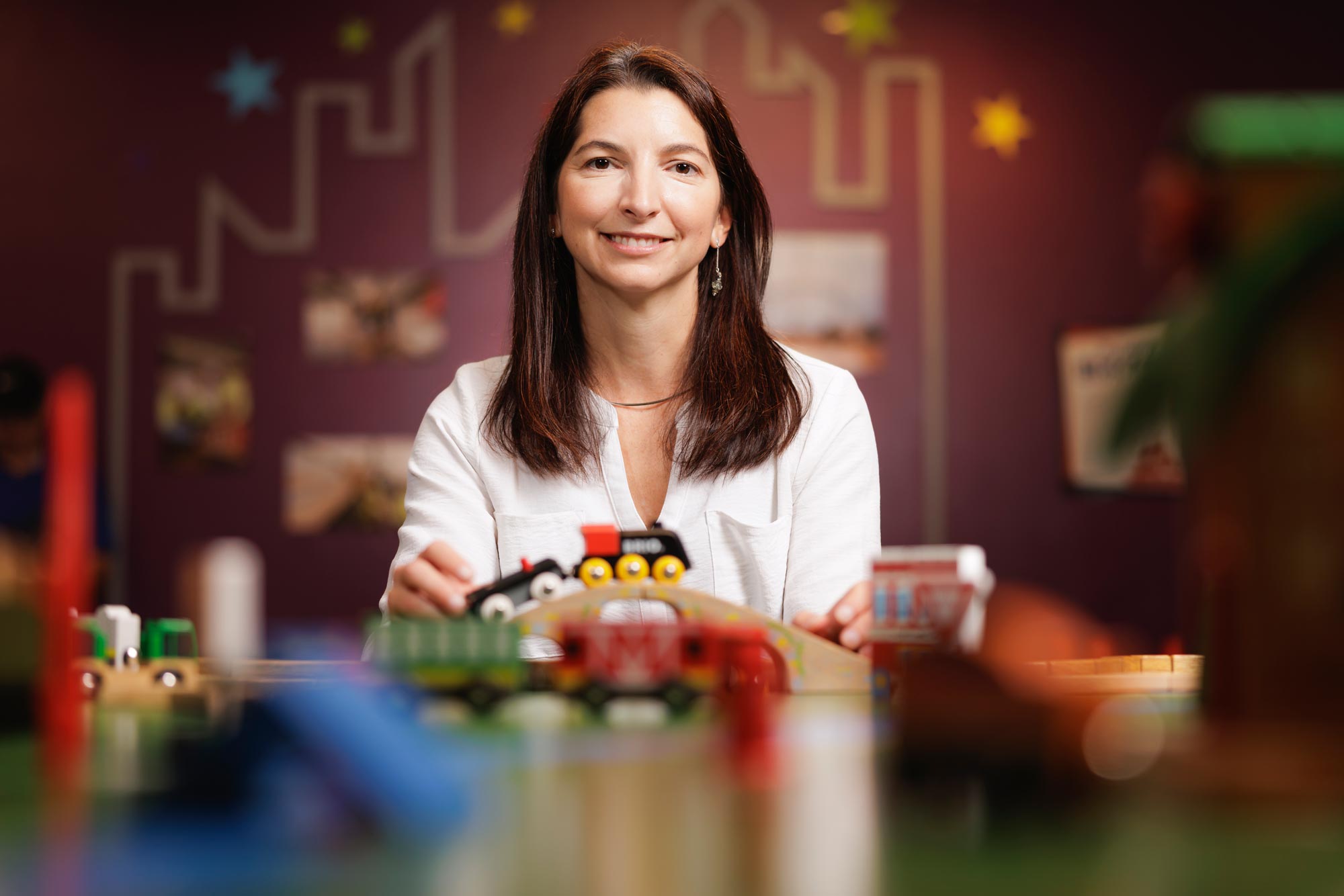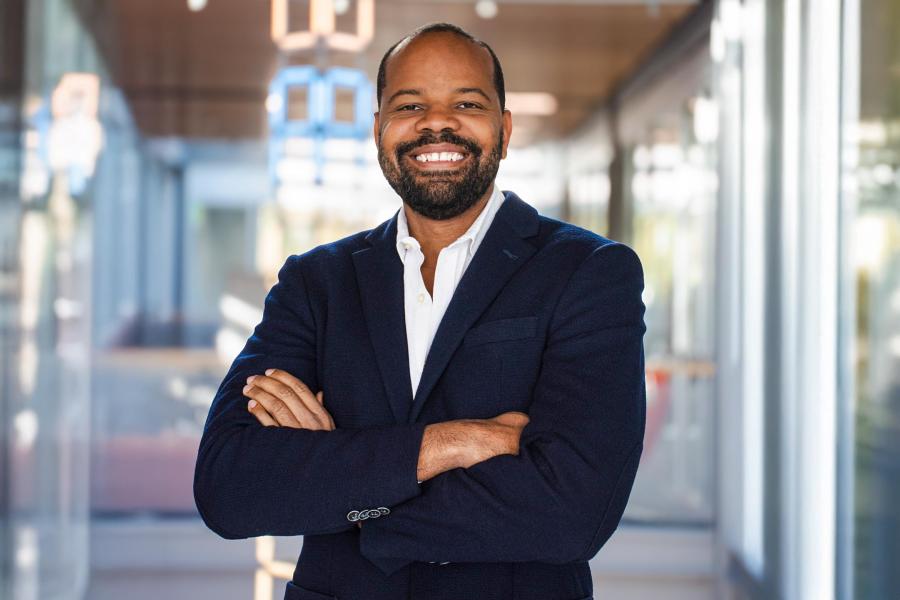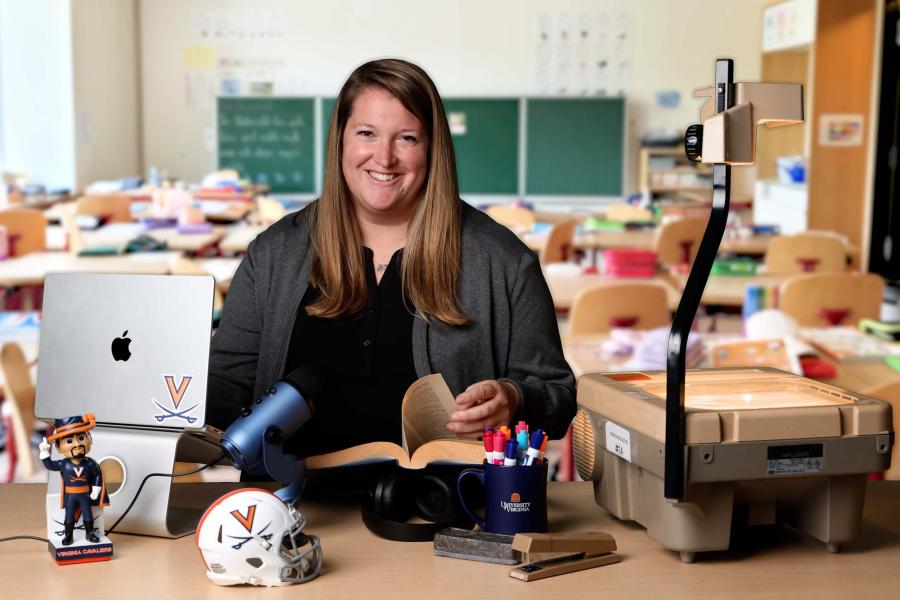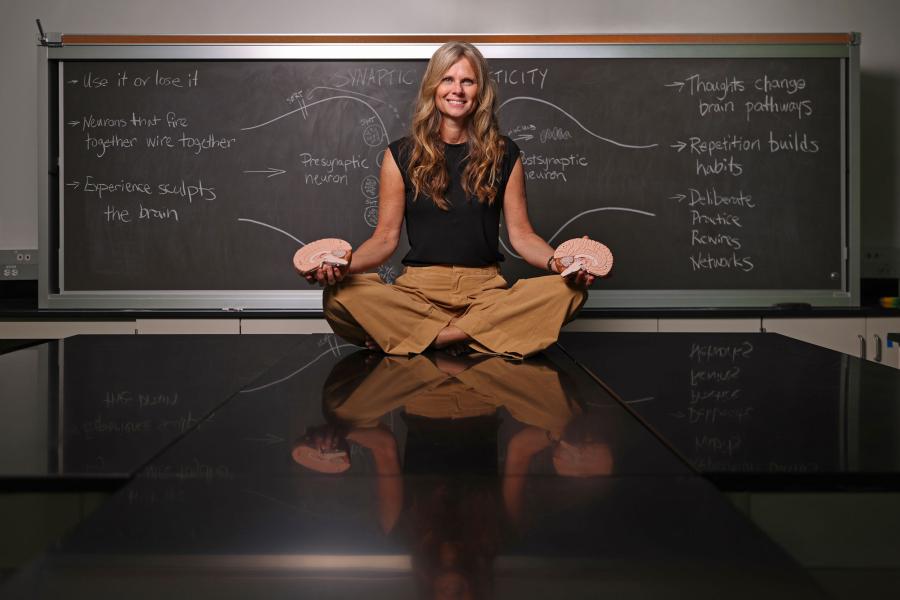It was a simple question in a grade-schooler’s mind, but it led to an award-winning academic career in teaching and research: Where does the information in textbooks come from?
“I just was wondering, ‘How do we end up with what’s in our textbooks? How do we know that’s true?’ And that’s when I started to learn about research,” said Jamie Jirout, associate professor at the University of Virginia’s School of Education and Human Development. “Then, when I went to college, I wanted to learn more about how we know things and started working in a research lab my first semester. Then I just kind of kept doing it.”
“What,” “how” and “why” are the questions guiding Jirout’s academic and professional life. She researches what drives children’s motivation and curiosity and the role spatial intelligence plays in how they learn.
Jirout directs the Education School’s Research in Education Learning Lab. Her research takes place in classrooms, in virtual labs and in community locations like schools and children’s museums.
She also shares her findings with her students, maintaining a personal touch while teaching them how to use AI to support and complement the learning that happens in her classes.

Still curious after all these years, Jirout tries to integrate research and teaching to study curiosity and promote it. (Photo by Lathan Goumas, University Communications)
She does it well. This spring, Jirout won one of UVA’s All-University Teaching Awards. The University’s Office of the Provost presents the annual awards to celebrate faculty members whose teaching contributes significantly to the University’s mission.
“Prof. Jirout never treats research findings as the final word, as there are so many individual factors,” one student, Lilah Xu, wrote in support of Jirout’s nomination. “She consistently sought feedback from students to refine her teaching materials and to meet the diverse needs of our class.”
Xu wrote that Jirout considered student input and quickly adjusted class activities based on their comments.
“The speed and responsiveness of her adjustments were unparalleled, and I deeply appreciated her genuine passion and care for both her students and her teaching,” Xu wrote.
For Jirout, becoming an academic was not intentional.
“I liked research and kind of ended up in research accidentally. I kept doing it through college, and when I was in my fourth year, my adviser, with whom I did research, told me I should go to grad school,” she recalled. “I was then on the track to becoming a professor. It just kind of happened.”
As much as she loved research, she also yearned to teach. While a researcher at Temple University, she approached a colleague about co-teaching a course.
“I asked her, ‘How do you get a job where you can focus on teaching as well as doing research, especially if you have no teaching experience?’ And she let me co-teach with her and kind of taught me how to be a faculty member,” Jirout laughed. “My doctoral training included a course on educational goals, instruction and assessment, but doing it in real life was a whole new experience.”










